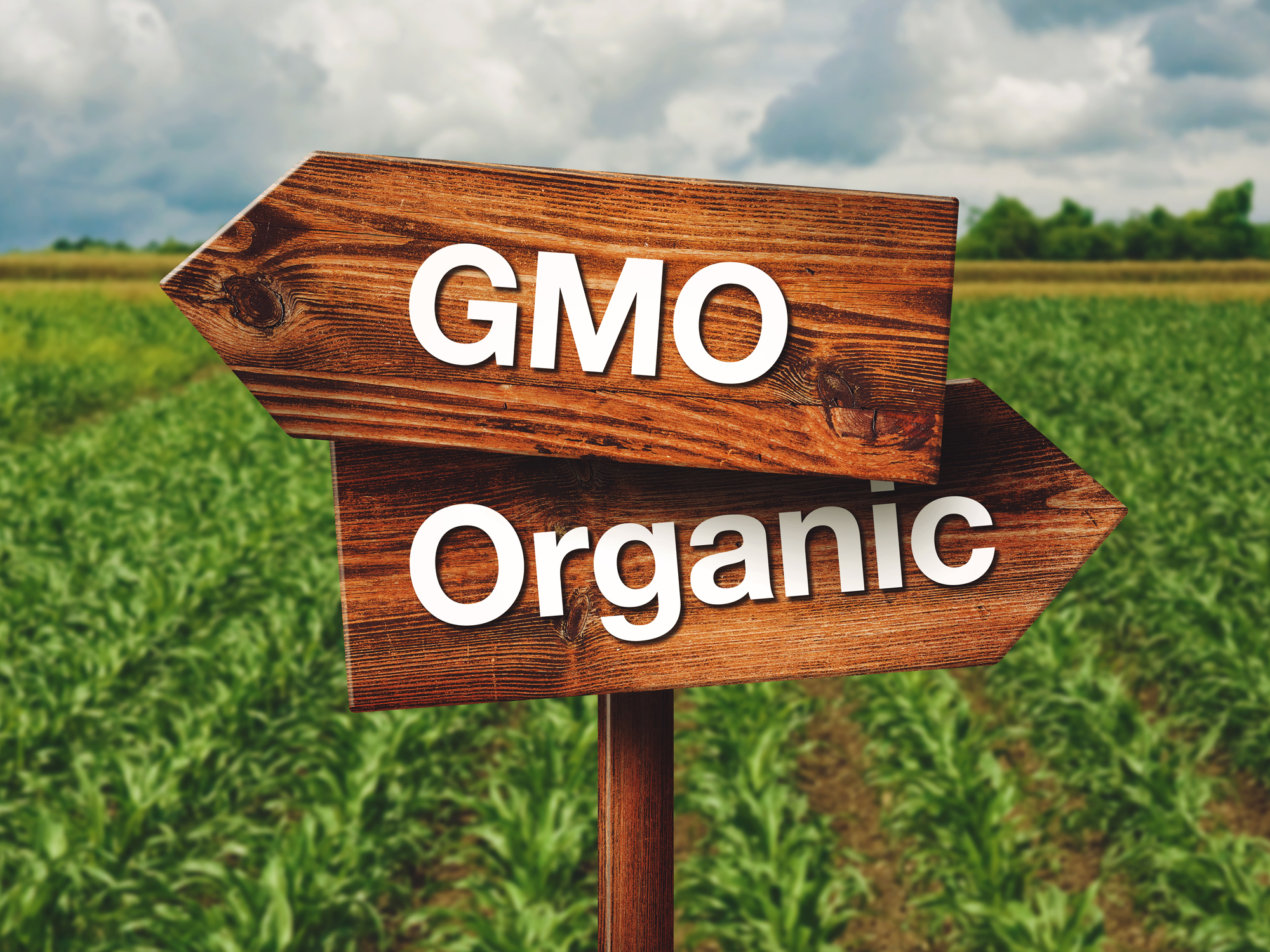Get Easy Health Digest™ in your inbox and don’t miss a thing when you subscribe today. Plus, get the free bonus report, Mother Nature’s Tips, Tricks and Remedies for Cholesterol, Blood Pressure & Blood Sugar as my way of saying welcome to the community!
Surviving in a GMO world

The most controversial subject in food today revolves around genetically modified organisms, or GMOs. These are foods that have been genetically engineered to take on a new trait, such as pest resistance or higher yield. They mainly include crops, but also animals, as the Food and Drug Administration recently approved genetically modified salmon for human consumption.
Many countries have banned the import or cultivation of GMO foods, but in the US, a vast majority of products contain GMO ingredients without any indication on the packaging. Thanks to efforts by organizers of “Right to Know” campaigns urging mandatory GMO labeling, perhaps we’ll be able to make more informed purchases soon. Polls state that the majority of US consumers want to know whether their foods contain GMO ingredients. But even with labels, most of your commercial food choices will still be GMO foods.
It’s important to realize that genetic modification is not a new concept. Farmers have been hybridizing plants for centuries, essentially modifying their genes. In the 1950s and 60s, scientists treated seeds with radiation in attempts to modify genes, with unpredictable results.
Now however, GMO means genetically engineered in a laboratory. Scientists take a gene from one organism and merge it with another. One example is Bt cotton, which contains a gene from Bacillus thuringiensis that kills caterpillars that devour cotton and other crops.
People object to GMOs for environmental and health reasons, but also to protect seed diversity and viability. If most of the world’s food is produced using GMO seeds, traditional heirloom varieties become less available, or worse, lost. On the environmental side, there are concerns that genetic modifications are difficult to control. Bt cotton may kill bollworms, but it may also damage the butterfly population. In addition, genes get passed in drifting pollen to other plants, meaning modifications don’t stay put.
GMOs also lead to increased use of agricultural chemicals. There is entire class of GM “Roundup ready” crops that are specifically designed to withstand increased herbicide use. Glyphosate, the active ingredient in Roundup, may be linked to cancer and other chronic conditions, and persists in the environment.
Health issues
GMOs have been in the food supply for more than 20 years, and have generated a significant number of concerns. Animal studies demonstrate that GMOs can induce organ damage, GI tract and immune disorders, accelerated aging, and infertility, among other issues.
Human studies show GMOs can contribute to toxic body burden and possibly cause long-term problems. For example, GM soy can transfer genes into the DNA of our microflora bacteria. Insecticide from the GM corn was found in pregnant women and their unborn fetuses.
Some point to the dramatic increase in allergies in recent decades as evidence that GM foods can cause an adverse immune response. More independent research needs to be done to get definitive answers.
Taking action
For those who are concerned that widespread GMO use might be affecting their health, there are a number of ways to mitigate the risk. The first is to avoid GMOs altogether.
Certified organic foods do not use GMOs, so that’s a great place to start. It’s not foolproof — as noted, GMO pollen can spread to other plants — but it will certainly reduce exposure.
It’s also good idea to adopt a regular detox regimen. Start with organic fruits and vegetables, lean proteins and sprouted organic legumes, seeds and “pseudo-grains” such as quinoa and amaranth. Drink lots of water and exercise to boost metabolism.
I also recommend a total-body detox formula which supplies methylated nutrients, sulfur compounds and targeted botanicals. This type of formula supports the body’s natural ability to remove toxins through normal detox channels: liver, kidneys and urinary system, GI tract, skin and lungs. Key ingredients include astragalus root, Chinese salvia, milk thistle seed, dandelion and ginkgo leaf, which provide antioxidants, boost vital energy, support liver function and promote optimal detoxification.
In addition, medicinal mushrooms support both immunity and detoxification. Mushrooms have a unique impact on the immune system, modulating the response rather than simply boosting it. They also help to remove toxins from organs and tissues, and replenish the body’s systems with important nutrients and therapeutic compounds.
One of the major concerns with GMOs is their impact on digestion. An integrative digestive formula helps to protect and rebuild digestive function using enzymes, minerals and herbs to support healthy digestive lining, boost nutrient absorption, protect against food-borne illness and relieve discomfort.
More research needs to be done for us to fully understand the health impact GMOs have. But we do know that they are widespread and difficult to avoid in the U.S. By strategically applying immune, digestive and detox support, we take important steps towards safeguarding our health.












